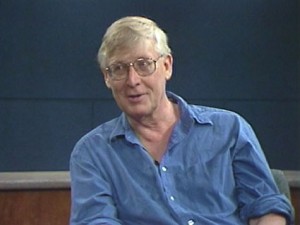Today kicks off our Roundtable on U.S. Foreign Policy and the Left, inspired by Perry Anderson’s remarkable set of essays on the theme of “American Foreign Policy and Its Thinkers” that appeared as a special issue of New Left Review (Sept/Oct 2013).
Anderson’s essays open up myriad avenues of analytical inquiry, so expect a wide-ranging discussion.
To me, one of the more useful aspects of Anderson’s essays is the way he neatly demonstrates the falsity of the realism-idealism divide, that old saw about how some U.S. foreign policy makers (like Woodrow Wilson) make decisions based on American ideals such as democracy, while others (like Henry Kissinger) base their policies on geopolitical strategies designed to further raw American interests like access to oil. In this, Anderson updates that venerable school of thought that goes back to William Appleman Williams, who showed in The Tragedy of American Diplomacy (1959) and several other important books that furthering American interests, such as committing from the early twentieth century to defending Open Door access to China’s markets, was entirely consistent with supposed American ideals. U.S. politicians and their consiglieres believe that what is good for America is good for the world. Anderson’s language is a touch different. He argues that U.S. foreign policy has had both universalistic and particularistic sensibilities, especially since the Cold War: the United States is the universal leader of the capitalist order and its foreign policies are designed to ensure stability to that order; while at the same time, as the hegemon, the United States shall be the biggest winner in terms of spoils.
Although historians such as Anderson and Williams have been exploding the false idealism-realism binary for at least half a century, such forms of analysis still hold wide sway in mainstream foreign policy circles. I was reminded of this upon reading the May/June 2014 issue of Foreign Affairs, which includes an essay by Walter Russell Mead—“The Return of Geopolitics: The Revenge of the Revisionist Powers”—that argues “old-fashioned power plays are back in international relations,” as if they were once gone. Incredibly, Mead believes the United States has preferred to ignore raw power and explicit national interests since the end of the Cold War. Instead, with European partners, the United States has geared policies to creating a world order favorable to everyone–“win-win.” In other words, Mead contends that the United States has acted non-geopolitically since the end of Cold War, even though many other nations, such as Russia, China, and Iran—those nations Mead calls “revisionist” because they don’t accept the “end of history”—never agreed on the post-Cold War settlement and have thus persisted in geopolitical power struggles. Instead of joining the pacifistic liberal world order, nations like Russia have chosen, Mead writes, tongue firmly planted in cheek, to “cling bitterly to their guns and their culture as the world passed them by.” In short, Mead wants a different foreign policy than the one Obama has ambitiously followed in his pursuit of a liberal world order, which has included: “blocking Iran’s drive for nuclear weapons, solving the Israeli-Palestinian conflict, negotiating signing arms control treaties with Russia, repairing U.S. relations with the Muslim world, promoting gay rights, restoring trust with European allies, and ending the war in Afghanistan.” Mead seems to have never heard of drones or the NSA. More damning, he seems to think NATO expansion eastward has to do with creating a pacifistic liberal order and not aggression, while Russia’s response to it—Russia’s invasion of the Crimea—is “an old-fashioned power play.”
Mead’s analysis is reliant upon Hegel and Francis Fukuyama, both of whom theorized about the so-called “end of history” and post-history humans. According to Mead, post-history humans—soft, decrepit, narcissistic—“closely resemble today’s European bureaucrats and Washington Lobbyists. They are competent enough at managing their affairs among post-historical people, but understanding the motives and countering the strategies of old-fashioned power politicians is hard for them.” Such an incredulous view of American politics stands diametrically opposed to the world on display in the popular television series House Of Cards. In Frank Underwood’s world, politics is about power—nothing else—and ideology means nothing.
In order to get beyond Mead’s strange acceptance of the idealism-realism bifurcation, and beyond conspiracy-driven caricatures of politics that, while entertaining, are no better as analysis, we need to think seriously about Perry Anderson’s essays. This roundtable endeavors to do just that.


2 Thoughts on this Post
S-USIH Comment Policy
We ask that those who participate in the discussions generated in the Comments section do so with the same decorum as they would in any other academic setting or context. Since the USIH bloggers write under our real names, we would prefer that our commenters also identify themselves by their real name. As our primary goal is to stimulate and engage in fruitful and productive discussion, ad hominem attacks (personal or professional), unnecessary insults, and/or mean-spiritedness have no place in the USIH Blog’s Comments section. Therefore, we reserve the right to remove any comments that contain any of the above and/or are not intended to further the discussion of the topic of the post. We welcome suggestions for corrections to any of our posts. As the official blog of the Society of US Intellectual History, we hope to foster a diverse community of scholars and readers who engage with one another in discussions of US intellectual history, broadly understood.
Wonderful opening to a great -looking roundtable, Andrew–thanks for it!
The resilience of the realism-idealism binary in foreign relations circles is not for lack of efforts to overcome it. Alot of new work on internationalism aims at doing precisely that. Check out Glenda Sluga’s Internationalism in the Age of Nationalism. One of the finest books I’ve read recently on this general subject of America in the world is an expansive biography of political geographer Isaiah Bowman–one of the most powerful Washington advisers we have forgotten–by Neil Smith entitled American Empire.
This is going to be a wonderful roundtable, and a treat to read.
One of the elements I’m most looking forward to is identifying WITHIN the American Left various strains of thought on foreign policy. Should be a fruitful series of posts!